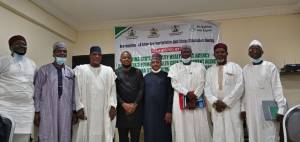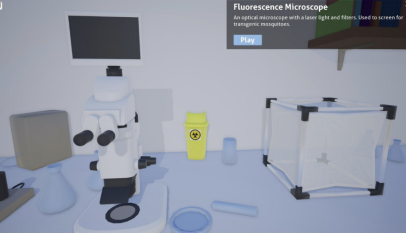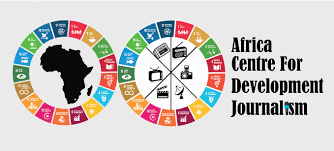NI-ABAE: Leveraging cash transfers to drive access to routine immunization in Nigeria
By Stephen Enoch
New Incentives – All Babies Are Equal Initiative (NI-ABAE), a nonprofit focused on leveraging the utilization of Conditional Cash Transfer (CCTs) to achieve child health development, Thursday, engaged health stakeholders from Katsina, Jigawa and Zamfara on strengthening CCTs to achieve a decline in the alarming infant mortality rates being recorded in recent times across the three states.

Childhood immunization and vaccines are renowned cost-effective child health interventions responsible for preventing about 2 to 3 million child deaths yearly across low-income countries of the world. Vaccines are thus significant contributors to efforts to reduce Nigeria’s high under-five mortality rates including in the country’s North West region, a region with one of the least vaccination coverage in the country, and consequently high prevalent of deaths arising from vaccine preventable diseases.
NI-ABAE’s CCT scheme entails supporting low-income households with monies for satisfying specific conditions such as up-to-date vaccinations for their infant children, constant visits to health care facilities by pregnant mothers for antenatal care, amongst others. New Incentives is implementing the CCT scheme in North Western Nigeria with the goal of utilizing a package of evidence-based interventions including community mobilization and sensitization to bring about positive health behavioral change resulting in increased immunization coverage.
Therefore, NI-ABAE believes its CCT scheme will address the high-level of deaths arising from vaccine preventable diseases as well as providing instantaneous money for the poor. Upon confirmation of their infant receiving a vaccine, the caregiver receives ₦500 for each of the first four routine immunization visits and the lump sum of ₦2,000 during the fifth visit. The cash transfers are meant to compensate for transport, lost trading income, and waiting time while creating behavioral change through awareness.
While speaking at a joint stakeholders meeting in Kano on Thursday attended by health stakeholders including health commissioners and executive secretaries of State Primary Health Care Development Agencies (SPHCDAs) from NI-ABAE’s focal states, namely, Katsina, Jigawa and Zamfara, Dr Obinna Ebirim, the National Coordinator of New Incentives, said the meeting was targeted at getting health stakeholders from the three states to brainstorm on previous successes, current status as well as future of the CCT programme.
The meeting also engaged the stakeholders on creating an enabling environment for the CCT scheme to thrive in their states by getting the respective state governments to support the programme and accordingly, bring about an expansion of the programme across the focal states.
“Since the commencement of the programme in the selected states in 2017, about 300,000 beneficiaries have been enrolled who received over N900 million in direct cash disbursement, which was monitored by our auditors and other officials. As at last year, we were only in 98 clinics but we have recently moved to over 450 clinics across the states and hope to reach all Local Government Areas of the states. Based on the commitment made by the commissioners of health, in the coming days, we would meet with governors of Jigawa and Zamfara states, to make them own it, just as the Katsina state governor did recently by becoming a champion of the program,” Dr Ebirim explained.
Also speaking at the meeting, Hon. Yakubu Nuhu Danja, Katsina State’s Commissioner of Health decried the high level of child mortality in his state, which he said had reached an alarming rate and thus required sustained attention. He therefore lauded NI-ABAE’s effort which he said had already yielded positive results adding that a wider reach across more LGAs would yield even more results in the future.
“As a result of the incentives being given to women in the form of conditional cash transfer, there has been a 30% increase in the rate at which women seek for immunization for their children as well as seek for antenatal care services. So, there is need sustain this programme in order to encourage women to continuously seek for antenatal care and also bring their children for immunization. In Katsina state, we also provide incentives to women in the form of pregnant women’s kit which encourages women to deliver at PHCs after attending ANC,” Danja explained.
In his remarks, Hon. Yahaya Kanoma, the commissioner for health in Zamfara State, lauded the decision of NI-ABAE to bring the various stakeholders in the three states together to strategize towards improved child health across their focal states. “Advocacy and sensitization in collaboration with relevant civic organizations and the media would guarantee a wider reach for the programme. Traditional leaders and religious institutions are key partners which should be leveraged to achieve more acceptance at the grassroots level,” Kanoma said.
Following the stakeholders engagement, Katsina, Jigawa and Zamfara states health authorities had all agreed to a greater ownership of the CCT scheme for routine immunization, confirming that the scheme was in line with their routine immunization and larger public health plans and priorities. Therefore, the health stakeholders are now expected to provide NI-ABAE the necessary support to expand the CCT for routine immunization programme to more LGAs and health facilities in their respective states.
To strengthen monitoring and evaluation of the NI-ABAE programme, the Department of Planning, Research and Statistics (DPRS) of the respective state ministries of health have committed to supporting the programme through a rapid assessment and analysis of the District Health Information Software (DHIS2) data. The executive secretaries of the different SPHCDAs also pledged to ensure accountability among health workers; adequately relay precise information on vaccine utilization as well as ensuring a periodic assessment of the cold chain system and safeguarding their proper maintenance and improvement to achieve vaccine effectiveness.
On the other hand, NI-ABAE had also committed to aligning its programs with the federal and state laws and policies, including routine immunization (RI) plans and priorities as well as continuing to support demand creation and other components for RI in the three states and also at the national level.













